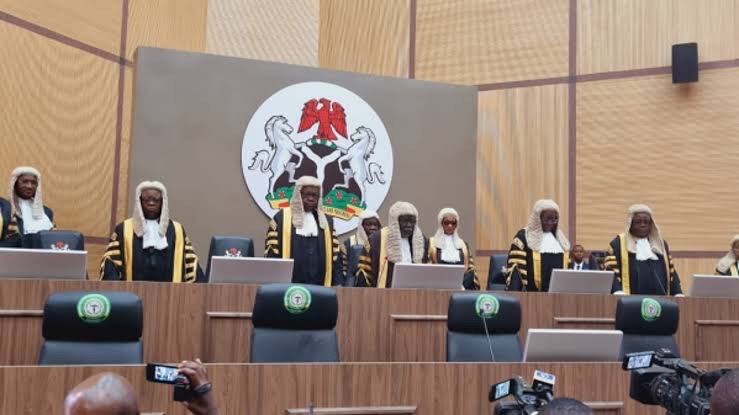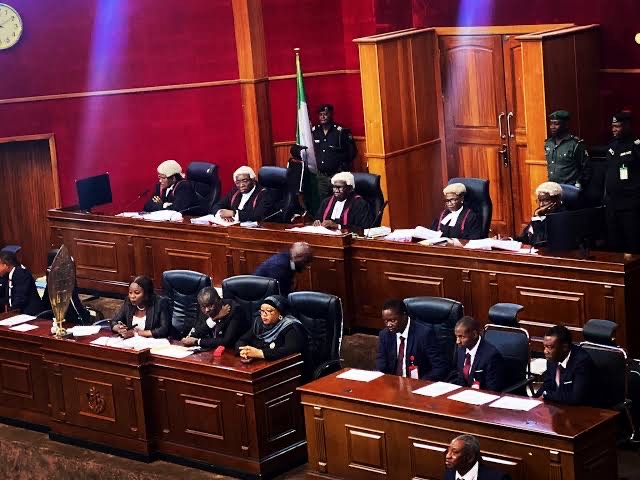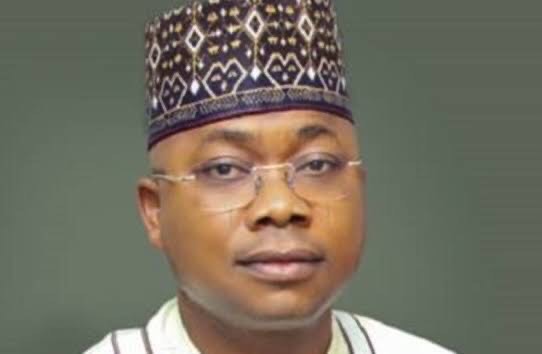By: Nwakaji Peace Martins
The Governorship Election Petition Tribunal in Kogi State, which convened in Abuja, has upheld Usman Ododo as the legitimate Governor of the state.
In a unanimous ruling, the tribunal dismissed the petition filed by the Social Democratic Party (SDP) and its candidate, Murtala Ajaka.
In a prompt response, Ajaka, the SDP candidate, has vowed to contest the verdict at the Court of Appeal, considering his defeat at the tribunal to Governor Usman Ododo as a temporary setback.
In a statement issued in Abuja, Ajaka stated, “A challenging path to freedom has just commenced.
“Today, I stand before you with a heavy heart, yet with a flame of hope ignited in my spirit. We have been informed that our election petition was not successful at the tribunal.
“It is indeed a setback, a moment of disillusionment, and it is natural for us to feel disheartened. However, let me assure you, my fellow citizens of Kogi, this is not the conclusion of our journey. This is merely a segment in our battle for justice, truth, the rights of our people, and liberty,” the statement reads.

He urged his supporters to remain composed and conduct themselves in an orderly manner while awaiting justice at the appellate court.
“I implore each one of you, my fellow Kogites, to remain united, resolute, and to persist in the struggle. Our journey may be lengthy and arduous, but together, we can surmount any obstacles that come our way. Let us not despair, let us not lose faith, and let us not lose sight of the ultimate objective.”
The three-member tribunal, presided over by Justice Ado Birnin-Kudu, determined that based on the Supreme Court rulings on the 2023 presidential and governorship elections, witness statements must be submitted along with a petition, not during it.
“The petitioners neglected to submit their witness statements (of PW1) under oath with the petition, within the stipulated time,” the judge stated while discarding the exhibits presented by the petitioners.

He further emphasized that “the oral testimonies provided by the petitioner’s witnesses are considered ‘hearsay evidence’ as they are not the originators of the exhibits submitted to the tribunal.
The tribunal dismissed the petition and confirmed Ododo’s election, stating that the petitioner could not substantiate the claim that the governor presented a counterfeit certificate.
Additionally, the tribunal established that the witnesses presented by the petitioners were not polling unit agents or INEC presiding officers.
The Independent National Electoral Commission (INEC) had declared Usman Ododo, the candidate of the All Progressive Congress (APC), as the winner of the fiercely contested November 11, 2023 Kogi State Governorship Election.
The state Returning Officer, Prof Johnson Urama, who is the Deputy Vice-Chancellor (Academics) of the University of Nigeria, Nsukka, announced Ododo as the victor at 10:23 pm on Sunday, November 12, 2023.
According to the announced results, Ododo garnered 446,237 votes, surpassing his closest competitor, Murtala Ajaka of the Social Democratic Party (SDP), who received 259,052 votes, while Dino Melaye of the Peoples Democratic Party (PDP) secured 46,362 votes.

Dissatisfied with the outcome, the petitioners approached the tribunal to contest the election results.
They also requested an order for INEC to conduct a fresh election in approximately five LGAs.
However, during the legal proceedings, Ajaka’s counsel, Mr. Joseph Okutepa (SAN), challenged the election results on the grounds of alleged forgery, voting irregularities, and non-compliance with the Electoral Act.
The petitioner summoned 25 witnesses from the five Local Government Areas, including Adavi and Okene LGAs, to challenge the outcomes from the disputed polling units.
The petitioners alleged that over-voting took place in five local government areas of Kogi state, including Adavi, Okene, Okeyi, and LGAs.
They claimed that Ododo provided false information to INEC.
Nonetheless, the legal team representing the APC, led by Emmanuel Ukala, contested the credibility of the witnesses presented by the petitioner.
Counsel for INEC, Kanu Agabi (SAN), argued that the witnesses presented by the petitioner lacked competence since “they are not the creators” of the electoral documents submitted as evidence.
The respondents maintained that the exhibits related to forgery and over-voting are merely “photocopies” that cannot be relied upon by any court.
However, Pius Akubo, who represented the petitioners during one of the hearings, contended that the assertion that his clients did not summon the creators of the exhibits is misleading, stating that the documents are certified true copies from the respective institutions, including INEC.


































